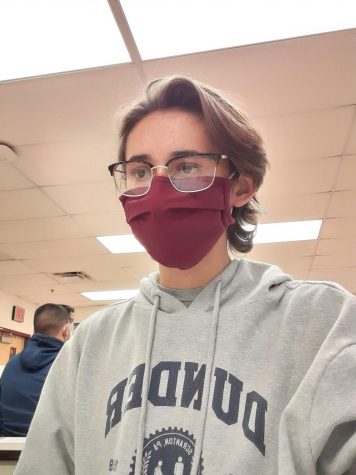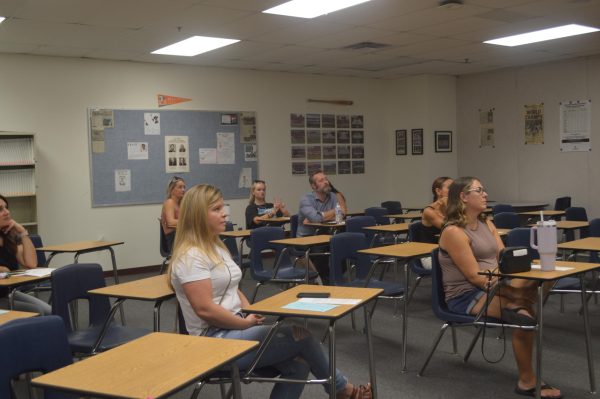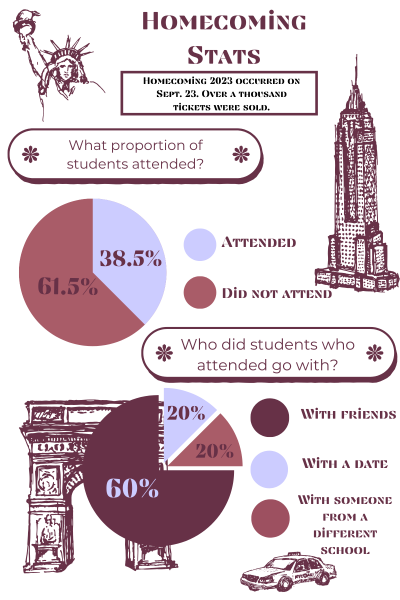Introducing ‘fifth wave’ in fight against coronavirus
Various responses and potential consequences to new omicron variant
The omicron variant is the latest opponent in the battle against the coronavirus. Countries across the globe have had mixed responses as they deal with the unknown variables that come with the new variant.
Ever the opportunist, the coronavirus comes back swinging with a new variant: the omicron. The emergence of the omicron variant is in line with many predictions from scientists warning about low vaccination rates. The World Health Organization (WHO) warns that the omicron variant poses a “very high” risk on a global scale and potential surges could lead to “severe consequences.” For now, many scientists believe that the omicron variant will be more transmissible and mutatable compared to the delta variant. However, very little is known about the variant.
The new variant was first identified in South Africa on Nov. 24th; however, there is proof of the variant being in the Netherlands beforehand as early as Nov. 19th. The exact timeline for the origination and spread of the variant is not yet clear. Scientists are working towards making a concrete timeline, but for the time being, there is no secure timeline of the emergence of the variant.
There have been cases of the omicron variant in Belgium, Brazil, Britain, Canada, Denmark, Germany, Japan, Scotland, and Spain in addition to South Africa and the Netherlands. Countries across the globe have had a range of reactions to the variant. Japan and Israel have placed a ban on all foreign travel, and Morocco has banned all incoming flights. Germany faces a possible vaccine mandate, and Greece mandated that all residents aged 60 and older be vaccinated by Jan. 16th. Members of the European Union have prohibited travelers from southern Africa. On Wed. Dec. 1st, the U.S. reported the first case of the omicron variant. The U.S. has banned travel to/from Botswana, Eswatini, Lesotho, Malawi, Mozambique, Namibia, South Africa, and Zimbabwe. Some believe that even slowing down the spread of the new variant through border shut-downs can provide scientists time to discover more about the omicron variant.
However, WHO claims that travel restrictions often have limited effects on slowing the spread of infection and only negatively impact the economy; now that the omicron variant has been found in multiple areas, placing the bans that target Africa are unnecessary. African leaders also share the belief that the bans are unscientific and indiscriminate.
In a recent speech about his new infrastructure bill, President Joe Biden reassured that his fight against the COVID-19 variant would not include “shutdowns and lockdowns” but “more…vaccinations, boosters, [and] testing.” The White House once again finds themselves diverting from their presidential agenda to fight the virus. The U.S. is working towards tracking the virus mutations on a national and global scale using Biden’s coronavirus relief bill of $1.7 million. Although tracking the virus helps, it will do little to stop the spread, especially around the holidays, with an increase in interstate and international travel, according to WHO.
Arizona has faced a substantial increase of COVID cases, even without the exposure to the omicron variant. The count has reached 1.27 million recorded cases within the state. For more information visit the WHO website. To schedule a vaccination/booster shot appointment, visit the government vaccination website. For more information about the coronavirus and omicron variant, visit the AP News COVID-19 resource.

Saydria Ostler is a senior at Perry High School, and this is her third year of newspaper. Saydria is the Editor-in-Chief this year! When Saydria is not...

Logan Cogley is a freshman at Perry High School and is in his first year of being apart of The Precedent. He is very excited to cover Girls and Boys Volleyball,...










